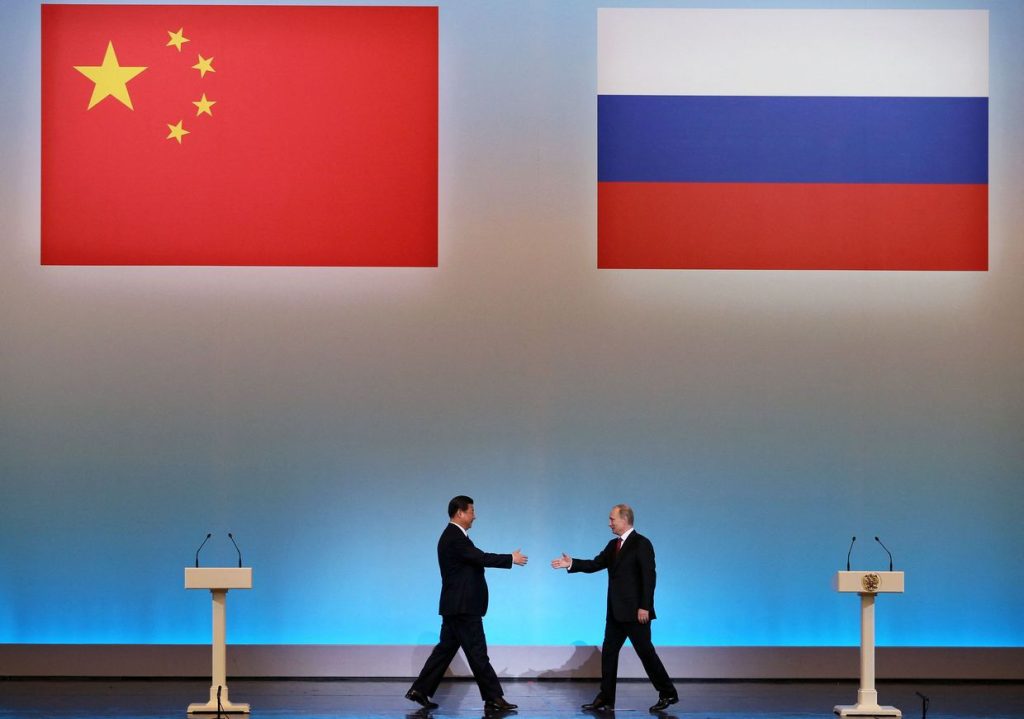Senior Chinese military officials recently met with their U.S. and Russian naval counterparts at the Western Pacific Naval Symposium in Qingdao. The symposium gathered navy representatives from 29 countries to discuss the topic of “Oceans with a Shared Future.” China’s naval commander Hu Zhongming and political commissar Yuan Huazhi exchanged views with U.S. Pacific Fleet Chief Stephen Koehler and Russia’s naval commander Alexander Moiseyev. China expressed readiness to work with all countries to build a maritime community with a shared future. Meetings were also held with naval counterparts from France, Chile, and Cambodia, as well as officials from Australia, the U.K., India, and Japan in light of rising tension in the region.
The Chinese Defense Ministry spokesperson, Wu Qian, highlighted that Chinese Defense Minister Dong Jun had a call with U.S. Defense Secretary Lloyd Austin on April 16. This marked the first time they had communicated in over a year. Discussions involved China-U.S. state-to-state and military-to-military relations, the Taiwan question, and the South China Sea issue. The call was deemed an important step in implementing the consensus reached by the two heads of state and was seen as significant in maintaining the overall stability of bilateral military ties. China officially declares itself a neutral party to Russia’s full-scale war in Ukraine, but the U.S. has raised concerns about Beijing’s support of Moscow’s defense-industrial expansion efforts.
The United States’ Secretary of State, Antony Blinken, has criticized China for being a primary contributor to Russia’s military-industrial complex by supplying Moscow with semiconductors and other dual-use technologies that can be used for military purposes. Beijing has defended its partnership with Moscow, stating that both countries have the right to engage in normal cooperation. China has faced ongoing criticism from Washington regarding its support of Russia amid the conflict in Ukraine. Despite China declaring neutrality in the conflict, the U.S. continues to voice concerns about Beijing’s involvement in enhancing Moscow’s military capabilities.
The symposium in Qingdao provided a platform for various countries to engage in discussions about maritime cooperation and the shared future of oceanic resources. China’s interactions with the U.S. and Russia signal a willingness to collaborate with key naval counterparts in promoting maritime security and stability. The meetings between senior military officials from China, the U.S., and Russia demonstrate a commitment to dialogue and engagement in addressing regional and global security challenges. The naval symposium serves as a vital forum for fostering mutual understanding and cooperation among participating nations in the Western Pacific region.
China’s participation in the Western Pacific Naval Symposium reflects its strategic importance and commitment to maintaining open dialogue with naval counterparts from around the world. The discussions and exchanges during the symposium contribute to building trust and fostering cooperation in maritime security efforts. By engaging with countries like the U.S. and Russia, China aims to contribute to the shared goal of promoting peace and stability in the region. The symposium serves as a platform for enhancing communication and coordination among naval forces, ultimately fostering greater security and cooperation in the Western Pacific. China’s involvement in such multilateral forums highlights its dedication to promoting maritime cooperation and addressing common challenges through diplomatic engagement.


